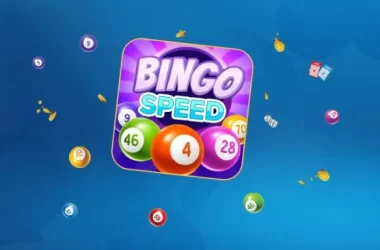Bingo games are designed for social engagement and have become immensely popular across generations. Many include chat features that create an environment of community; these features also increase player loyalty.
Caleta Gaming recently unveiled an exciting new hybrid football/video bingo game to engage sports fans around the world and revolutionize fan engagement. This exclusive offering from Caleta is an example of true digital gamification and revolutionizes fan engagement.
Embedded eSports elements
Esports is becoming more and more popular, and viewers want more ways to interact with it. They want to contribute prize pools or bet on specific matches. That is where Play2Live comes in; its unique crowdfunding option and integrated betting and gambling options enable viewers to participate more directly with eSports events than before.
Many eSports leagues are organized by game publishers rather than independent companies because these experts know their games and communities best, and can monitor any changes made (such as power balance between characters, or new game mechanics).
These leagues are starting to draw audiences that are younger and more tech savvy than those for traditional sports leagues, including brand advertisers like Nike and Louis Vuitton. Furthermore, eSports athletes are developing substantial fan followings comparable to professional athletes in other sports.
Real-time data
Esports makes use of real-time data, enabling players to connect more closely with the game while creating an exciting way for fans to engage with it and feel involved with their sport in ways not usually possible through traditional viewing experiences. It also creates an unparalleled viewing experience.
Esports tournament organisers generate official data that can be used to enhance fan experiences, inform editorial content and generate new revenue opportunities. But corralling all these disparate datasets together into an efficient production environment is difficult. Bannister Lake’s Chameleon data aggregation and management system makes it simple for producers to organize, edit and display different sets of information simultaneously in real-time.
Social functions in games can also help promote brands and increase player engagement. For example, Bingo Blitz allows users to compete against each other in friendly competitions; social gamers who become engaged are likely to stay engaged with the game and be aware of its promotions.
Cryptocurrency payouts
Some platforms also provide betting with Litecoin and Ethereum for an expanded betting experience, enabling players to access games and bonuses while enjoying safe gambling experiences. Before depositing cryptocurrency on any website, always check licensing and security arrangements before doing so.
By employing blockchain technology, cryptocurrency bingo offers greater security and transparency in gaming transactions, helping gamers avoid disclosing personal information without disclosing fraud as well as cost cutting measures through reduced transaction expenses.
Cryptocurrency bingo sites provide players with an assortment of bonuses and rewards, including free bets and cashback. These features increase players’ chances of winning big prizes. It is also wise to look for wallets with robust security features and user-friendly interfaces to increase chances of success and make gaming even more fun – for instance some wallets feature password protection; furthermore they enable funds transfer with ease.
Integration with social media
Online bingo platforms leverage chat features to recreate a social environment that mimics that of land-based venues, while some even permit players to connect their social media accounts for even greater socializing opportunities and potential wins. By increasing socialization of bingo play and increasing networking between friends, this increases both its social aspect and chances of wins.
Recent years have witnessed an surge in the popularity of both eSports and bingo, leading to their convergence into an engaging new experience for audiences of both. But navigating legal and regulatory requirements can be complex.
The eSports industry is growing quickly, with more people tuning in to watch live events on TV or via social media and even betting on them. A number of studies have explored the relationship between esports betting and problem gambling among adolescents; these include survey-based studies, qualitative interview studies, computerized analyses on gambling companies’ Twitter ads as well as two that analyzed computerized data of gambling companies themselves – each finding higher levels of externalizing and internalizing problems among those who participated.







